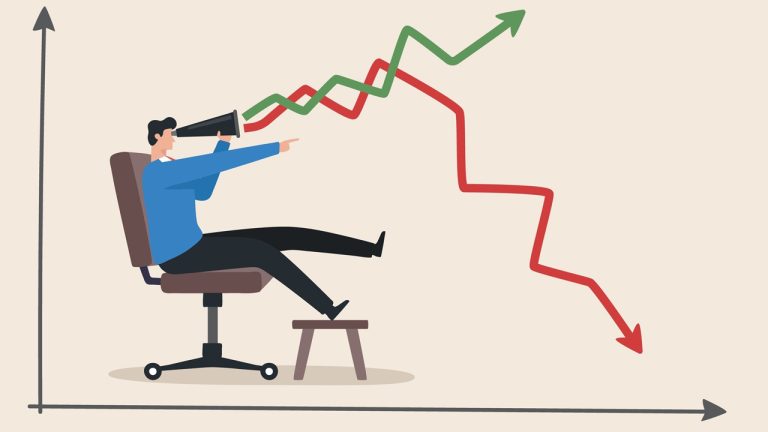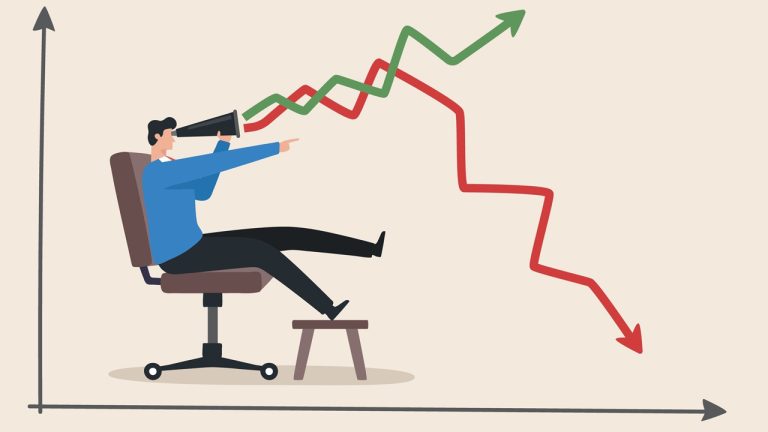
Top 3 Macroeconomic Events to Watch in 2023 Amid Volatile Market Conditions

2022 was a tough year for crypto assets, and as the world welcomes 2023, the macroeconomic backdrop remains uncertain. Macroeconomic events will continue to shape the crypto economy and the economy as a whole. This editorial takes a look at the top three macroeconomic events to keep an eye on in 2023.
Examining the Top 3 Macroeconomic Events That Could Shape the Economy and Crypto Market in 2023
The new year has started and the upcoming 12 months sure look gloomy in terms of the global economy. In 2022, assets such as precious metals, stocks, and cryptocurrencies were impacted by macroeconomic events, leading to volatile asset prices. Macroeconomics, is a branch of economics that studies the behavior of an economy as a whole, and it considers any event that significantly impacts the overall economy of a country or region to be a macroeconomic event. The following is a look at three different events that could impact the global economy a great deal and affect the prices of stocks, precious metals, and crypto assets.
The Ukraine-Russia War
The Ukraine-Russia War is a macroeconomic event that can affect the global economy and the world’s assets in 2023. After Russian president Vladimir Putin delivered his New Year’s Eve address to the nation, people believe the war will continue at his discretion. Rather than his traditional appearance in front of the Kremlin, Putin was flanked by a handful of Russian servicemen and women wearing army fatigues. The speech indicates that Putin will continue the war in Europe, despite the West’s actions to stop Russia by imposing significant financial sanctions on the country. Like 2022, the ongoing war in Europe will affect the world’s assets in 2023, as the warfare and sanctions have caused energy prices to skyrocket and supply chains to break.
Covid-19 in China
Stocks, crypto assets, and precious metals have been dealing with the macroeconomic effects of Covid-19 for over three years now. According to multiple reports, Covid-19 is allegedly raging in China and the government has stopped releasing Covid case count numbers. Covid in China has worried global investors in 2022 and it has lapsed over into 2023. The reason for such worry would be global trade as the pandemic has caused specific supply chains to come to a grinding halt during the last few years. Covid has affected crypto prices as ‘Black Thursday’ in March 2020 shows that bitcoin (BTC) dropped below the $4K region after the United Nations’ World Health Organization (WHO) declared Covid-19 was a global pandemic.
Central Bank and Fed Rate Hikes
After suppressing benchmark bank rates before the Covid-19 pandemic and during 2020’s major stimulus injection, central banks like the U.S. Federal Reserve have raised benchmark interest rates a great deal. Whenever the Fed raised the rate, it caused massive fluctuations in precious metal, equity, and crypto markets. Interest rate hikes are macroeconomic events that have managed to shake up the world’s lending rates a great deal. For instance, a 30-year fixed interest rate on a mortgage in the U.S. today is 7.9%. The rate is a lot higher than the 3.815% 30-year fixed interest rate on a mortgage in the U.S. in January 2022. Raising or reducing the federal funds rate is one macroeconomic event that always seems to cause market fluctuations.
Macroeconomic events can be positive or negative for a stock, precious metal, or crypto asset if it is expected to have an impact on the security’s underlying foundations. The aforementioned events above may or may not affect global markets and the world’s assets but they could also shake them to the core. 2023 may be no different in that sense as 2022 clearly shows that macroeconomic events like the war in Europe, Covid-19, and central bank rate hikes have moved all of the world’s most popular markets including fiat currencies, commodities, securities, and crypto assets.
What do you think about the three macroeconomic events that could shape crypto, stock, and precious metal markets in 2023? Let us know what you think about this subject in the comments section below.
Go to Source
Author: Jamie Redman









